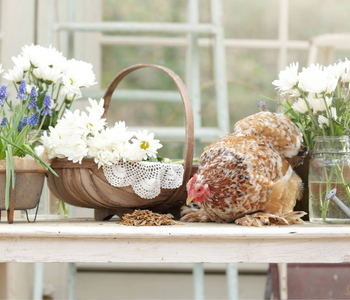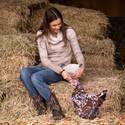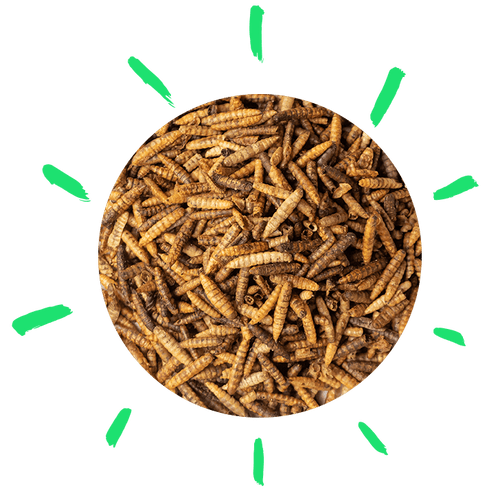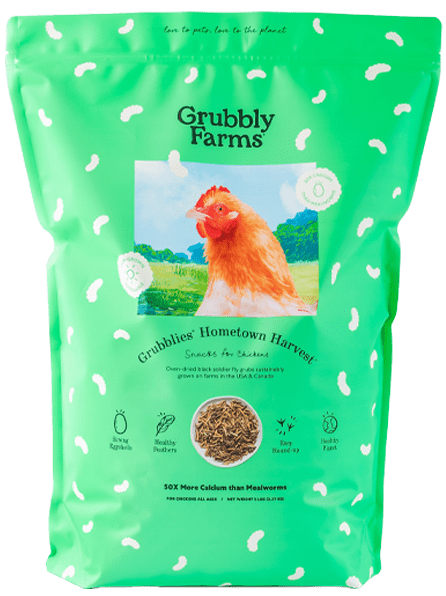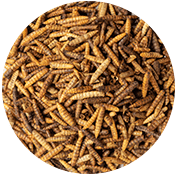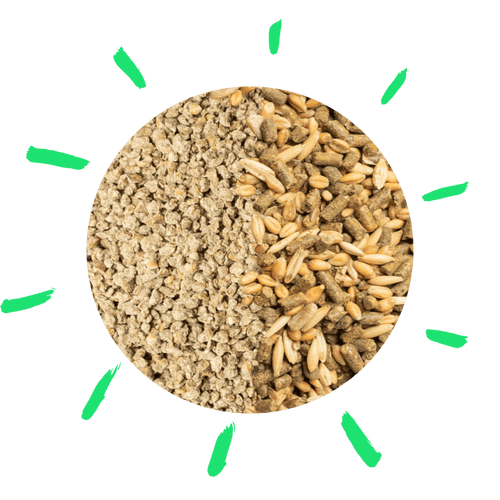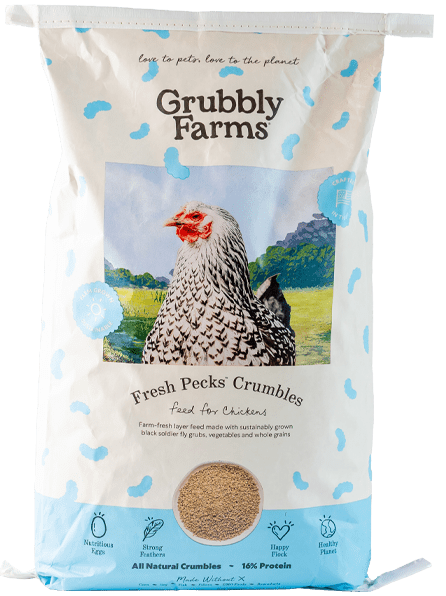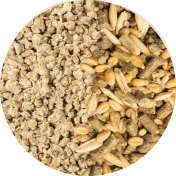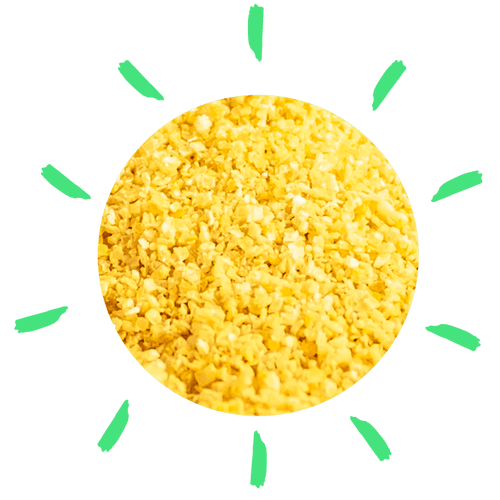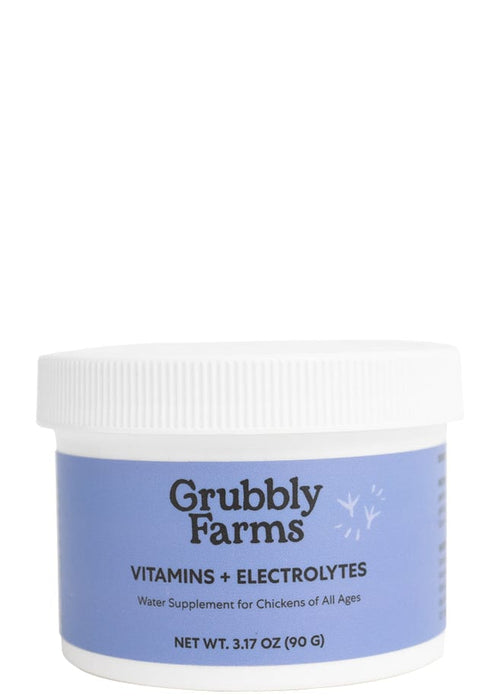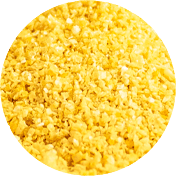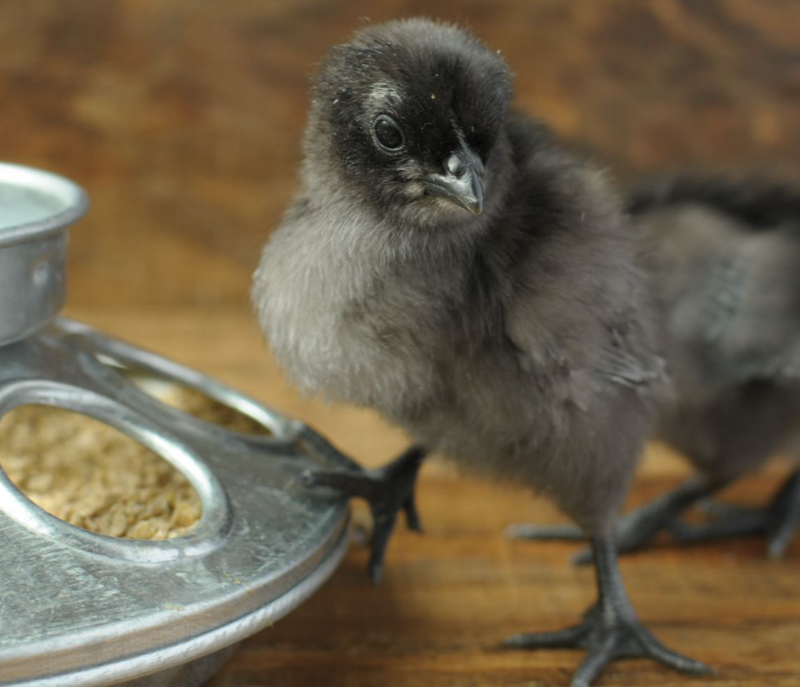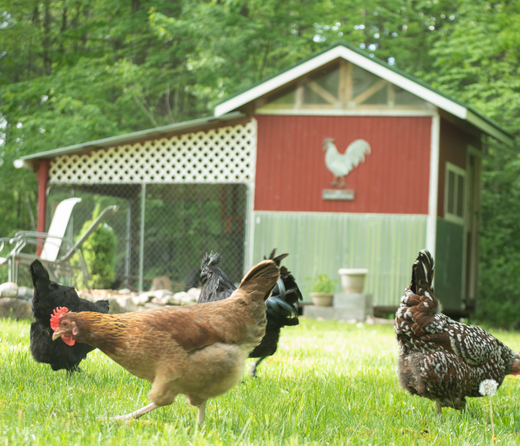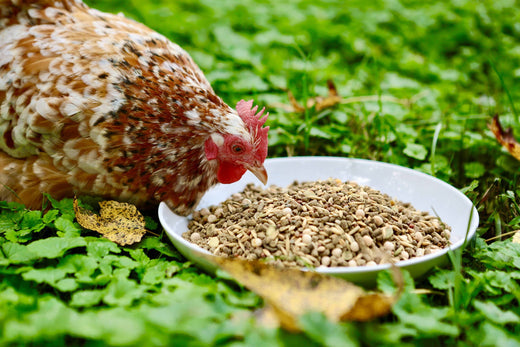Chicken feeds are formulated to meet all of your flock's nutritional needs to keep them healthy and strong. Yet, most chicken parents opt to also feed their flock a snack for a variety of reasons.
Below are 7 reasons to feed your flock a healthy snack in additional to their regular feed. You'll learn easy tips and tricks to providing a nutritious daily snack.
1. Molting
When your flock is molting, they need extra protein to regrow their feathers. Rather than taking the time to transition your flock's layer feed to a grower feed, you can simply add a high protein snack to their diet like black soldier fly grubs. A double serving of protein-packed grubs will help supplement your flock's feed to help them through their little rough patch.
2. Eggshell Strength
Hens require eggstra calcium to help them lay strong, healthy eggshells. Due to the lack of quality feeds and "treats" on the market prior to 2015, chickens have needed additional calcium sources like oyster shells to avoid thin eggshells.
Unless you are feeding a zero-dust feed, it's common to have a feed where the calcium and other essential nutrients floats to the bottom as dust (making it impossible for any chicken to eat it). This creates more waste and results in lower quality nutrition for chickens. This often means thin eggshells.
Black soldier fly grubs are the only insect in nature to have a 3-1 calcium to phosphorous ratio for optimal nutrient absorption. In other words, your flock will receive the full nutrients, without needing extra calcium supplements like oyster shells.
Don't miss this! Black soldier fly grubs and mealworms are not interchangeable. They are two different insects with different levels of nutrients for your flock. Grubs have over 50x more calcium than mealworms to help chickens lay higher quality eggshells. Mealworms also require oyster supplements while grubs do not. You can learn how grubs and mealworms compare here.
3. Summer and High Temperatures
On those scorching hot summer days, it's essential that chickens drink enough water and stay cool to avoid heat stress. Sprinkle their grubs in a water dish. While they bob for their snacks, they'll gobble up extra water to stay hydrated. This hydration trick is a great for dogs and cats too (who also love grubs).
4. Winter and Low Temperatures
Fortunately, most chickens have a natural feathered coat to endure all of those frigid winter temps.
What happens if your flock is molting with patches of feathers missing? What if the temps dip to an unreasonable temp?
When the temps are extra low, try sprinkling your Grubblies over warm raw oats, or giving them a couple of handfuls before bed. While they metabolize the grubs overnight, it will give them extra energy to stay warm.
5. Training Your Chickens
Whoever said chickens cannot be trained has not given their flock a tasty snack yet.
Just like any pet, chickens love their snacks... especially insects. Although they can forage for insects in the grass, it's also beneficial to have your flock foraging for insects that you provide them regularly. Why?
If you have a regular snack routine, your flock will start following you everywhere, which is especially helpful when you need to get them back into the coop.
Some chicken parents choose to have a nightly "hen happy hour" just before bed to gather their flock. You can shake the bag of snacks before every snack time. This is a great way to train your flock to get back into the coop quickly and safely.
6. Caring for Sick Chickens
If you find that one of your chickens is sick, they may not seem interested in eating or drinking. Just like a child who is sick and doesn't want to eat, he or she needs a little extra love and encouragement to eat something.
The same is true with your fluffy family, and it's crucial that your sick hen or rooster stays energized with food and water.
Try feeding your sick chicken a small handful of Grubblies for extra protein. If they are willing to eat a few pecks, you can sprinkle the grubs into a dish of water. As they bob for their snack, they'll also gobble up some water. Hydrate! Hydrate! Hydrate!
7. Bonding with Your Flock
After pecking at their feeders, it's natural for chickens to enjoy a healthy snack like insects, veggies or seeds.
Just like you and I enjoy eating a healthy snack in addition to our meals to help give us energy (like a handful of nuts or a slice of avocado), chickens love snack time too!
It's fun to watch your flock come rushing over for their snack. Some will even try to fly for their Grubblies. A sight to see!
If you have any shy chickens, you can start to bond with them during snack time to gain their trust. Pretty soon, all of your fluffy ones will come running and clucking with joy for their daily snack time!





